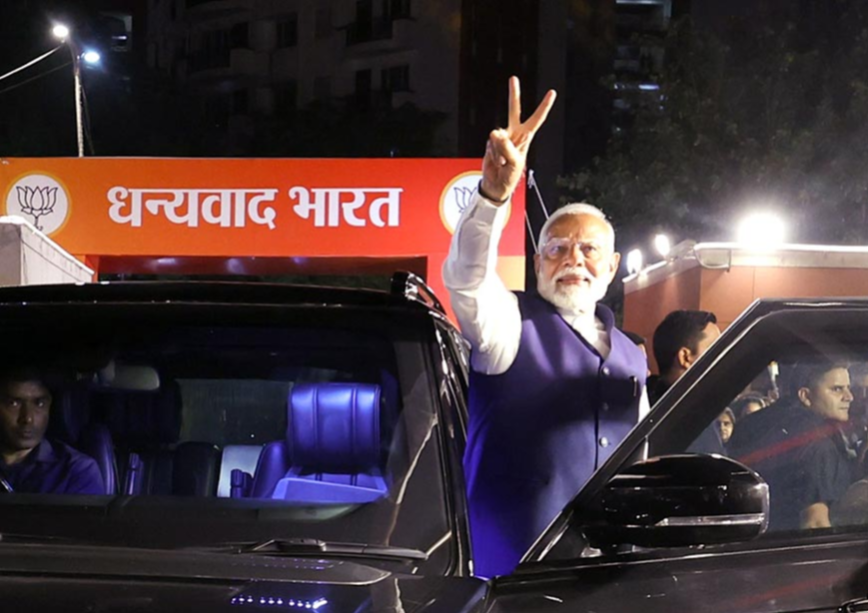As the third term of Prime Minister Narendra Modi commences, the world is watching keenly what changes and continuities emerge. While Modi might appear to be constrained by the compulsions of domestic politics, it is unlikely to have much of an impact on India's external engagements. Modi has fundamentally altered the way India engages with the world, and that trajectory will continue to unfold over the next five years under his leadership. This is a critical moment in the global order and India's centrality to the emerging order is now well-established. With the Modi government continuing in office, it offers India's partners and adversaries a new opportunity to assess their ties with New Delhi.
A Changed Landscape
For India's partners, the Modi continuity ensures that the framework around which engagement with India was built over the last decade will remain in place and that it will be made more robust going forward. The Modi government has succeeded in altering the very nature of India's partnerships by making them key to enhancing India's strategic autonomy. Instead of close alignments being viewed as a constraint, there has been an emphasis on building robust partnerships with like-minded partners, increasing India's strategic space to manoeuvre.
In a world order defined by fluidity, India in the last decade has succeeded in building partnerships with the West even as it managed to retain its ties with Russia, despite the growing antagonism between the two. On the one hand, this trend saw New Delhi's growing role in the Quadrilateral Security Dialogue - the Quad - involving the US, Japan and Australia. On the other, India continued to shape the evolving arc of the BRICS platform by making it BRICS-plus. Despite the China factor, India has managed to enhance its profile in a range of global platforms, be they multilateral or plurilateral. The most high-profile plurilateral - the Quad - gained its salience precisely because of India's serious engagement with it over the last few years.
For India's partners, the continuation of the Modi government would mean a continuation of New Delhi's priorities when it comes to working closely with its partners in forging global governance outcomes and pursuing Indian interests. The invitation to neighbours for the swearing-in ceremony also signifies that the focus on India's neighbourhood will continue; this is also a signal that New Delhi has no intention of ceding strategic space in its periphery. The presence of the President of the Maldives, Mohamed Muizzu, in New Delhi for the ceremony reflects the desire on the part of Male to recalibrate ties with New Delhi once the domestic political scene settles.
What A Third Term Means For India's Neighbours
Among the neighbours, Pakistan would be watching Modi 3.0 with a degree of wariness. There has been a subtle outreach by Islamabad in recent months, but it is unlikely to yield any dividends soon. Modi will deal with Pakistan on his own terms, and at a time and place of New Delhi's choosing. There is no real hurry to change the Indian approach vis-à-vis Pakistan, as New Delhi has been successful over the last decade in marginalising Pakistan not only on the global stage but also in Indian political discourse. This has allowed India to shift its focus to the real strategic challenge - China.
Beijing has already started on a sour note with Modi by protesting the congratulatory exchange between Taiwan's President Lai Ching-te and the Indian Prime Minister, arguing that New Delhi should resist Taiwan's "political calculations". And when the Chinese foreign ministry congratulated Modi for his election victory, India merely reiterated that New Delhi will pursue normalisation of its ties with China based on mutual respect, mutual interest and mutual sensitivity.
A new government in India is taking shape. With a growing economy and a vibrant democracy, New Delhi under a revitalised Modi 3.0 is going to be a critical player on the global stage. Both India's partners and its adversaries should be attuned to the effect of a self-confident India straddling the world on its terms.
This commentary originally appeared in NDTV.
The views expressed above belong to the author(s). ORF research and analyses now available on Telegram! Click here to access our curated content — blogs, longforms and interviews.




 PREV
PREV

.png)
.png)